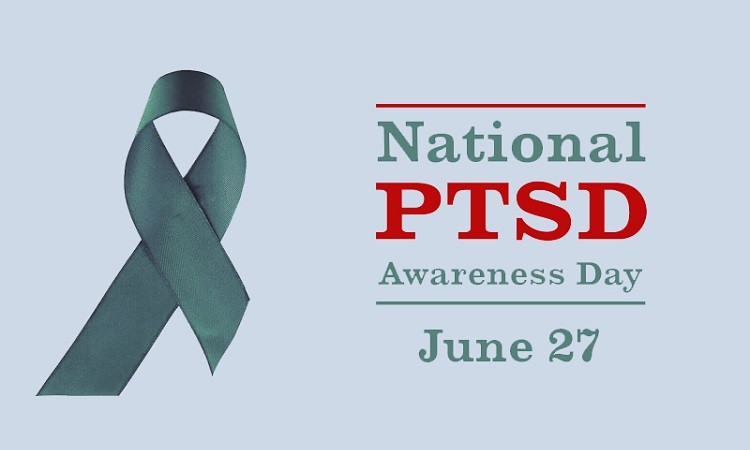
PTSD Awareness Day 2023: June 27th marks PTSD (Post-Traumatic Stress Disorder) Awareness Day, a significant occasion to shed light on this mental health condition that affects millions of individuals worldwide. PTSD can develop after experiencing or witnessing a traumatic event, and it can have a profound impact on a person's life. This article aims to raise awareness about PTSD, its symptoms, potential causes, and the available support options for those affected. By increasing our understanding of this condition, we can foster a more compassionate and supportive environment for individuals living with PTSD.
What is PTSD? Post-Traumatic Stress Disorder (PTSD) is a mental health condition that can develop after experiencing or witnessing a traumatic event. It is not limited to soldiers or combat veterans; anyone who has gone through a distressing experience can be affected by PTSD. Traumatic events may include physical or sexual assault, natural disasters, accidents, acts of terrorism, or the sudden loss of a loved one.
Symptoms of PTSD: The symptoms of PTSD can vary from person to person but generally fall into four categories:
Intrusive Thoughts and Memories: Individuals with PTSD may experience recurrent, intrusive thoughts, nightmares, or flashbacks related to the traumatic event. These memories can be distressing and cause extreme emotional reactions.
Avoidance: People with PTSD may actively avoid places, people, or activities that remind them of the traumatic event. They might withdraw from social interactions, isolate themselves, or develop a general sense of emotional numbness.
Negative Mood and Cognitive Changes: PTSD often leads to persistent negative emotions, including feelings of fear, guilt, shame, or anger. It can also affect a person's ability to concentrate, memory, and overall cognitive function.
Hyperarousal and Reactivity: Individuals with PTSD may exhibit heightened levels of anxiety, irritability, and an exaggerated startle response. They may also struggle with sleep disturbances, such as insomnia or nightmares.
Causes of PTSD: While experiencing a traumatic event is a significant risk factor for developing PTSD, it is important to note that not everyone who experiences trauma develops the condition. Several factors can contribute to the development of PTSD, including:
Severity and Duration of the Traumatic Event: The more severe and prolonged the trauma, the higher the risk of developing PTSD. Individual characteristics, such as previous traumatic experiences, a history of mental health disorders, or a lack of social support, can increase the vulnerability to developing PTSD.
Brain and Hormonal Changes: Research suggests that changes in brain areas involved in memory and emotion regulation, as well as alterations in stress hormones, may play a role in the development of PTSD.
Seeking Support and Treatment: If you or someone you know is experiencing symptoms of PTSD, it is crucial to seek professional help. Several effective treatments can help individuals manage and recover from PTSD, including:
Psychotherapy: Evidence-based therapies such as cognitive-behavioral therapy (CBT), eye movement desensitization and reprocessing (EMDR), and exposure therapy can assist individuals in processing traumatic memories, managing triggers, and developing healthy coping mechanisms.
Medication: In some cases, medications such as selective serotonin reuptake inhibitors (SSRIs) or other antidepressants may be prescribed to alleviate symptoms associated with PTSD. These medications should always be prescribed and monitored by a qualified healthcare professional.
Support Groups and Peer Support: Joining support groups or engaging in peer support networks can provide individuals with a sense of community, understanding, and encouragement. Connecting with others who have experienced similar challenges can be highly beneficial.
PTSD is a complex mental health condition that can significantly impact an individual's life. On PTSD Awareness Day, it is essential to raise awareness and understanding of PTSD, as well as to provide support to those affected. By recognizing the symptoms, understanding the potential causes, and promoting available treatments, we can contribute to a more compassionate and inclusive society.
As a society, we can contribute to the overall well-being of individuals with PTSD by fostering an environment that promotes understanding, empathy, and support. Educating ourselves about PTSD and challenging misconceptions can help reduce the stigma surrounding mental health conditions.